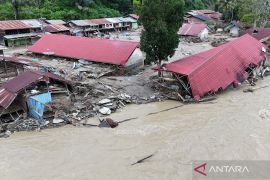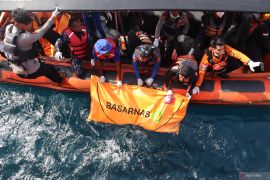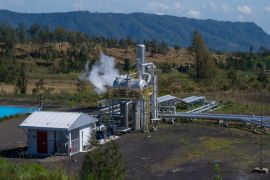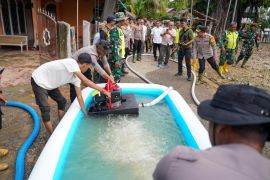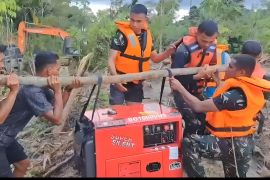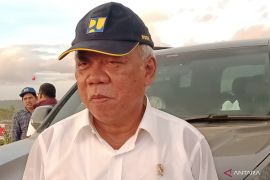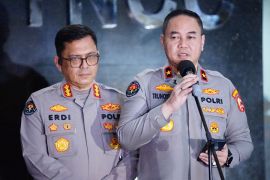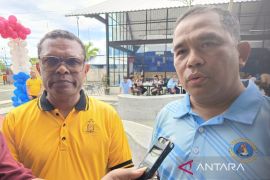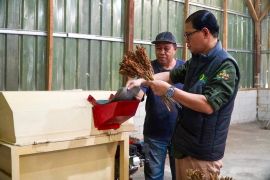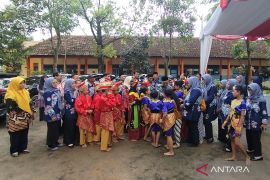During its initial project, the offshore aquaculture development has adopted the technology practiced in Norway.Jakarta (ANTARA News) - Three pilot sites of offshore aquaculture have been launched to breed the Barramundi and Sea Bass fishes in Aceh and Central Java provinces, an official from the Fishery and Maritime Ministry stated here on Tuesday.
"Beginning in 2017, we now are developing the offshore aquaculture in Sabang, Aceh province, the southern waters of Java Island, and the Karimun Java Island in Central Java province," the Ministrys Secretary of Aquaculture Directorate General Tri Hariyanto noted after delivering a speech at a seminar in Jakarta on Tuesday.
The secretary explained that although Indonesia has vast waters, stretching from the islands of Sumatra and Papua, the offshore technology has not been optimized in the aquaculture sector.
"Hence, President Joko Widodo has instructed us to begin developing the offshore aquaculture not only to improve the fish productivity but also to ensure food security in the country," he remarked.
During its initial project, the offshore aquaculture development has adopted the technology practiced in Norway.
"Norwegian fishermen have long used the offshore aquaculture to breed Salmon. We hope the similar technology could be practiced here to culture some coral fish species, such as Barramundi and Sea Bass," he reiterated, while adding that the ministry has not yet planned to launch other sites, because the agency still awaits further evaluation of the existing initial projects.
"We hope that we could add the number (of the offshore aquaculture sites) in the future, but we still have to wait for at least one year," he remarked, while explaining that apart from regular fish-farming, the offshore aquaculture seeks to breed some marine species in the open ocean.
During this mornings seminar, held by Indonesian Council on World Affairs (ICWA) and Taipei Economic and Trade Office in Indonesia (TETO), Hariyanto explained that some issues posed as challenges in the aquaculture sector.
"Apart from the environmental issues, including climate change, the aquaculture sector also faced the over-carrying capacity in terms of production, as well as some threats from virus and other diseases," he remarked.
Opened by the TETO representative in Jakarta, John C. Chen, the seminar was an effort by Indonesia and Taiwan to seek some potentials in the aquaculture and marine sectors.
"We try to explore any possibilities of joint venture to invest in the aquaculture sector in Indonesia," Chen noted, after delivering a remark in the seminar.
"However, we have not yet set a concrete program, because it has to be discussed earlier with the officials. I believe some meetings with Indonesian ministries and other agencies would be necessary to optimize our cooperation in the fishery and maritime sectors," he revealed.
Earlier, Chen remarked that Indonesia and Taiwan shared a similar vision in strengthening the marine and fishery resources.
"I believe the New South Bound Policy, launched by the President Tsai Ing-wen last year, has been in line with Indonesias vision of Sea is Our Nations Future set by the Maritime and Fishery Minister Susi Pudjiastuti," he noted.
Hence, in my humble opinion, the potentials of cooperation between Taiwan and Indonesia in the field of aquaculture are great, Chen pointed out.
"Taiwan is well-known globally for its advanced development in aquaculture, while Indonesia has a perfect maritime environment for aquaculture. Indonesia and Taiwan, therefore, can work together to form a win-win model for bilateral cooperation on aquaculture. It is time for the two countries to become partners in this sector," Chen remarked.
He further hoped todays meeting, attended by some experts and companies, would improve the relations between Indonesia and Taiwan, mainly in terms of developing the aquaculture sector. (*)
Editor: Heru Purwanto
Copyright © ANTARA 2017


